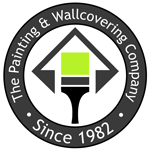7 Tips For Painting Your Kitchen in Medford, NJ
7 Tips For Painting Your Kitchen in Medford, NJ
The kitchen is said to be the core of every home where it is a space for entertaining as well as cooking.
Painted kitchens are becoming progressively prevalent because they can help you to attain the design you desire.
But if you are a newbie in DIY projects, there are things you need to know and consider before starting.
With that in mind, here are the 7 Tips For Painting Your Kitchen in Medford, NJ
1. Choose your Kitchen Paint And Finish, Beforehand
Your kitchen area usually gets a lot of attention, so you must choose paint colors that tend to have a high visual effect and parallel with the idea of foodstuff and eating.
Moreover, you should choose paint finishes that are well appropriate with the environment and factors inside your kitchen area.
One of the most commonly used finishes is satin and semi-gloss because it can clean easily with wipes or clothes.
Meanwhile, matte is seldom suggested because it is hard to clean and moisture can results in streaks.
Choosing the correct paint and finish will make your work uninterrupted and nonstop making the job faster.
2. Gather All The Tools
Before you jump with the painting task, you must gather first all the adequate materials for the project.
Collecting the right and high-quality tools such as paints, primers, brushes, and rollers can make your work stress-free
Moreover, in painting, it is much recommended to use tools like a sturdy ladder to reach the corners and extenders to effortlessly grasp ceilings.
3. Clean Your Kitchen Area
Before you proceed with the painting, make sure that you have already prepped and clean the walls and ceilings
We all know that the kitchen is one of the most used areas of our home where grease, dirt, and grime can accumulate rapidly.
So, if you want to have a pro-like result, make sure to clean the surfaces so you will have evener and flatter coats.
You may use a vacuum and a damp cloth or tack cloth to fully remove dirt and cobwebs along your kitchen area.
Another thing you need to consider is to check for dents, holes, or cracks in your walls so you can repair these damages ahead of time.
4. Wrap or Remove Kitchen Equipment
If you want to work effortlessly on your kitchen project, make sure to remove all the equipment in your working place.
But if you don’t have a safer place for the materials to move in, wrapping them with plastics or cloths will do.
Likewise, make sure that you protect your floorboards from paint drips by covering them with drop cloth or rosin paper.
5. Have Some Prime
If your kitchen walls have already been painted in clean condition, priming is not necessary at all.
However, you need priming if you have unpainted drywall, bare wood, or painted walls that are in poor condition.
To perfectly apply primer, use a roller on large zones and brush on expenses that are too small for rollers.
6. Start Painting In Upper Area
As with any painting job the ceiling is always the priority to be coated so that any paint drips will not ruin the freshly painted walls.
One of the pro tips in painting ceiling areas is to use a roller for larger surfaces and a paintbrush for edges.
7. Apply Multiple Coating
If you want to have a finish with a more deep and smoother appearance, applying two or more coats is a must.
Make sure to let the paint dry for a couple of hours, before you re-roll and re-brush one more time.
Always keep in mind that no painting project finishes quickly, it requires patience so you will get the best results.
If you’re looking for a trusted and reliable residential painter in Moorestown, Mt Laurel, Cherry Hill, Haddonfield, Voorhees, Evesham, Medford, Tabernacle, Shamong, and the surrounding areas, we can help.
Call us on 609.953.0944 for a FREE, no-obligation estimate.
Related: 7 Tips For Refacing Your Kitchen Cabinets in Evesham, NJ

